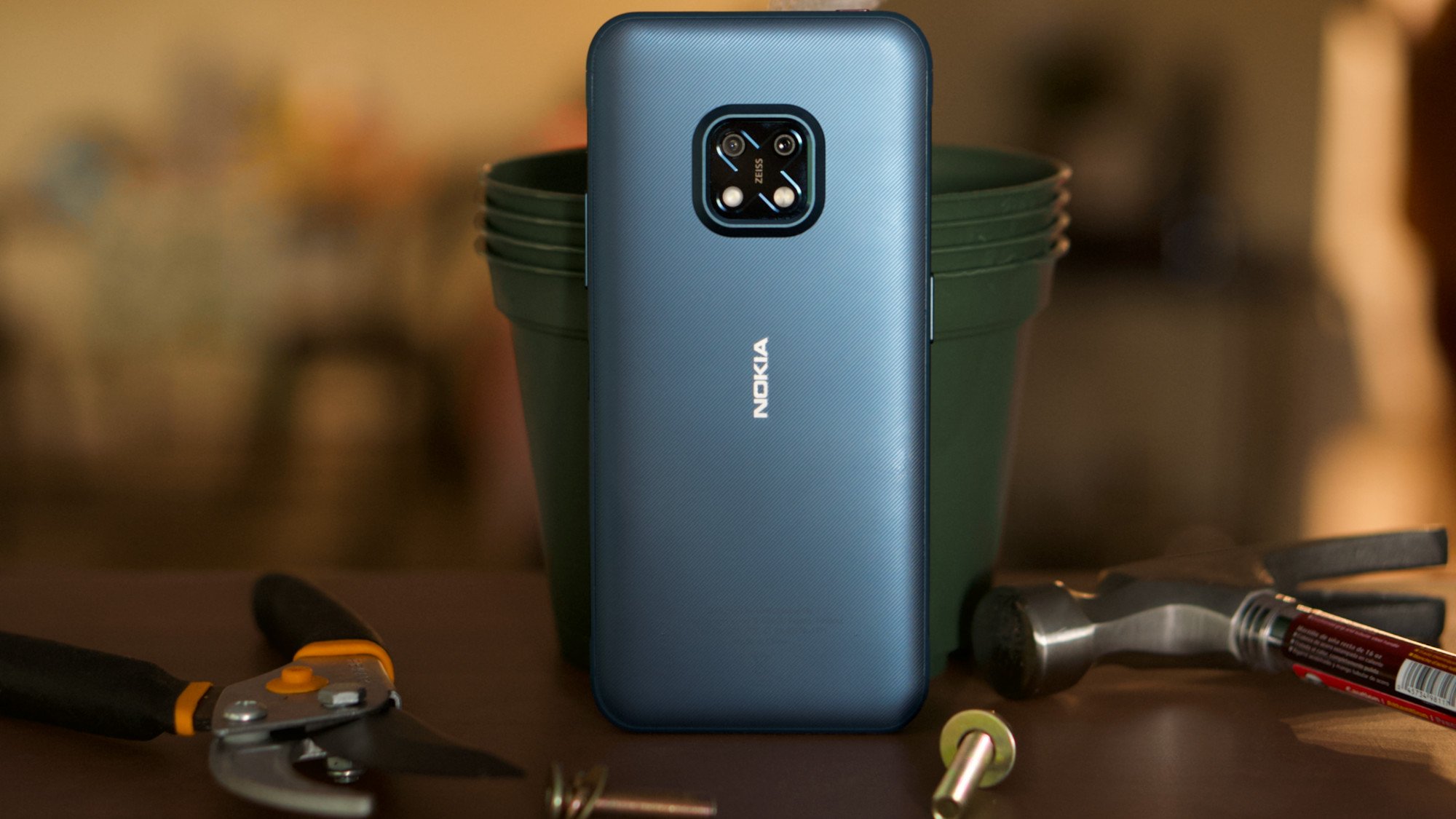Android Central Verdict
Bottom line: The Nokia XR20 gives you mid-range specs — from its Snapdragon 480 5G processor and 6.67-inch, 60Hz display to its mid-tier 48MP camera — for a fairly high price. But as a rugged phone specifically, it offers a software experience leaps and bounds above most competing brands, plus a frame that can handle 5-foot drops or an hour underwater with no case. Add in Gorilla Glass Victus and one free screen repair from Nokia, and you get a phone that can handle virtually anything you throw at it.
Pros
- +
Handles falls, scratches, and water without issue
- +
Lighter and more attractive than most rugged phones
- +
Bright display for outdoor use
- +
Configurable Google Assistant and Emergency buttons
- +
3.5mm headphone jack
- +
3 OS updates/ 4 years of security updates
Cons
- -
Underwhelming CPU at this price
- -
Too heavy and large for some people
- -
Buttons can be squishy
- -
Selfie cam cut-out draws attention
Why you can trust Android Central
Many of the best rugged phones come from brands that you likely haven't heard of. They'll have military-grade fall protection, water resistance, massive batteries, and designs that hearken to the most hardcore of heavy-duty cases. But you may not always be sure what kind of software experience you're going to get, especially with the cheaper models.
With the Nokia XR20, it looks less like a phone cosplaying as a tank and more like a regular phone on steroids. Look at another recent Nokia phone like the Nokia G20 and make it much beefier — both externally and internally — and you'll have the XR20 in a nutshell.
With a price that's mid-range for typical Android phones (and on the higher end for rugged phones), the XR20 is selling itself as a premium durable phone with the qualities of a mainstream phone. For most people, its level of protection is extravagent; but anyone shopping for this type of phone should give the XR20 serious consideration. It's not a perfect device, but you'll find few alternatives that match up.
Nokia XR20: Price and availability

The Nokia XR20 launched on August 24 in most territories, though it has yet to arrive in some countries like India. While Nokia is selling a single 6GB/128GB variant in the US, the UK and Europe can purchase a cheaper 4GB/64GB variant as well.
The standard 6GB model will cost you $550 / £450 / €499, while the international 4GB model drops to £399 / €399.
Nokia XR20: Design and durability
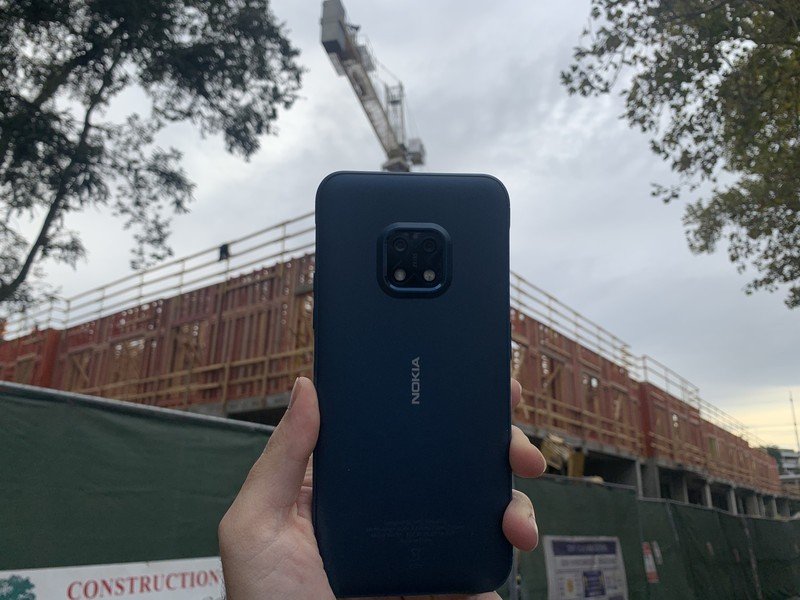
The Nokia XR20 grabs your attention with its ruggedness: it's designed to withstand shock damage, water, dust, and scratches, and you get a free screen repair if you break it in your first year. For anyone who needs something durable for a rough work environment — and doesn't want to bother with a case or screen protector — the XR20 fits the bill.
Equally important: the Nokia XR20 looks much more sleek and stylish than most rugged phones.
The most obvious point to bring up with the Nokia XR20 is its size. At 8.8 ounces or 248g — just over half a pound — it has a noticeable weight when holding it in one hand for any length of time. But this is standard for rugged phones; in fact, many of our other top picks weigh 9 to 11 ounces, making the XR20 light by comparison.
Its 6.67 FHD+ display is satisfyingly large and bright, capable of hitting 550 nits. You'll have less trouble viewing it in direct sunlight than most other phones. I appreciated the extra screen space, but it does make it harder to hold comfortably in one hand, especially for those with smaller hands. My partner, for instance, couldn't easily reach her thumb across the display or hold it from the bottom due to its mass. But you likely know whether you prefer small phones or large ones already.
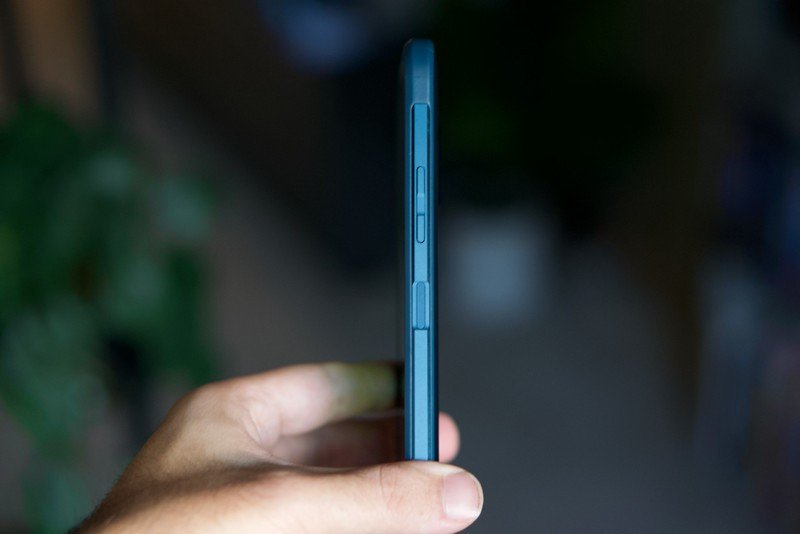
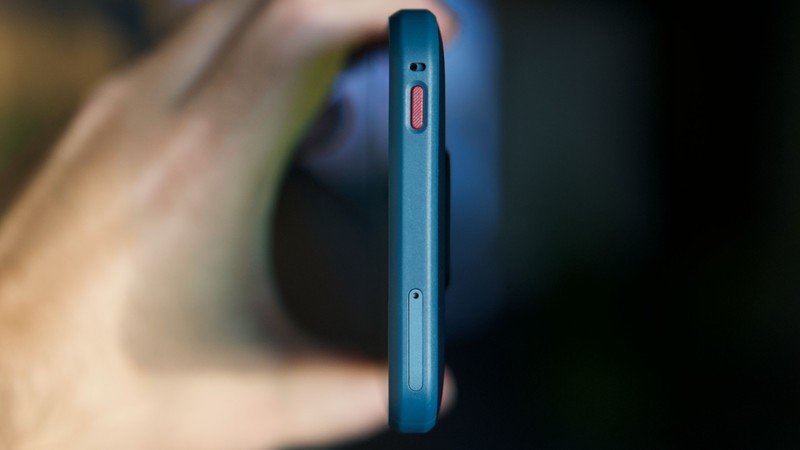
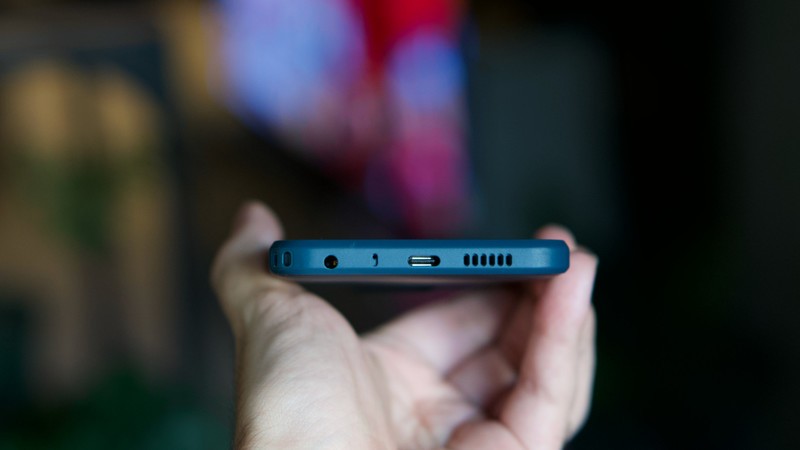
The XR20 isn't just lighter than other rugged phones; it's also much more stylish and less tacky-looking.
The phone has a textured, polymer composite back that gives it a feeling of sticking to your hand — like any good case. I'd highly recommend buying the Ultra Blue model, which highlights the phone's attractive gloss. Along the sides, you have aluminum edges with a polygonal outline that fits in with the phone's hardcore look.
Like many Nokia phones, it has a centered, symmetrical camera module. Unlike the others, the XR20 module is slightly elevated to prevent damage to the lenses, which in turn causes the phone to sit at a slight incline on flat surfaces. In practice, you may notice some marginal wobble if you tap too hard on the phone edge; at the same time, the slight angle seemed to make the display a bit easier to read than most flat phones. Overall, I'd call this a quirk more than a real negative (or positive).
On the front, you'll note the clear bezel extending along all four edges, particularly on the bottom. It's accentuated by the raised edge of the phone, which protects the display from falls. Anyone buying a rugged phone will just have to accept this quirk; and compared to most of its competitors, the XR20 bezels are compact by comparison.
Rugged phone aficionados will also appreciate its scratch-resistant Gorilla Glass Victus display — the best option available in 2021. You certainly won't need a screen protector unless you plan on dropping the XR20 in a rock quarry.
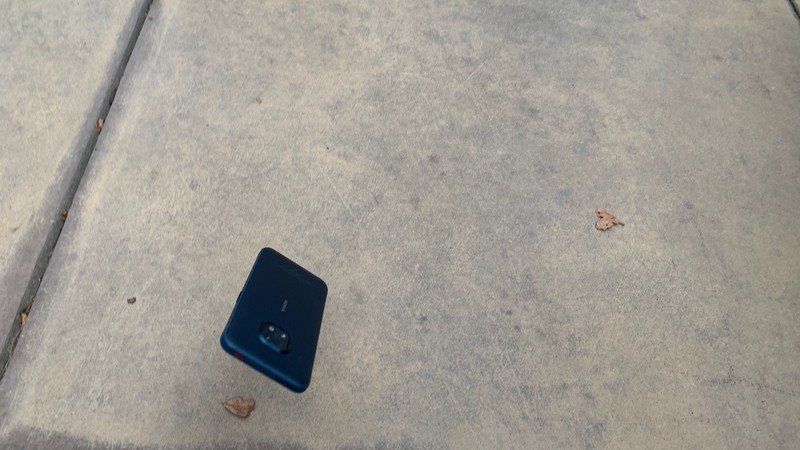
On that note, the Nokia XR20 has MIL-STD-810H and IP68 protection, which means it can handle drops up to 1.8m/6ft or submersion up to 1.5m/5ft for an hour. As someone who rarely puts my faith in marketing materials, I found it intensely stressful to put this to the test. But I dropped the phone onto hard concrete from shoulder height a couple of times, and it was none the worse for wear. The same applied when I stuck it under my sink. After that, I didn't push my luck; but it clearly seems durable after a couple of weeks' testing.
Truly, my only real issue with the phone's design is the selfie camera cut-out: it's weirdly noticeable and becomes hard to ignore once you see the ghosting around it. I'm sure people will learn to disregard it, but I almost wish Nokia had gone with a teardrop bezel instead.
Nokia XR20: Hardware and cameras
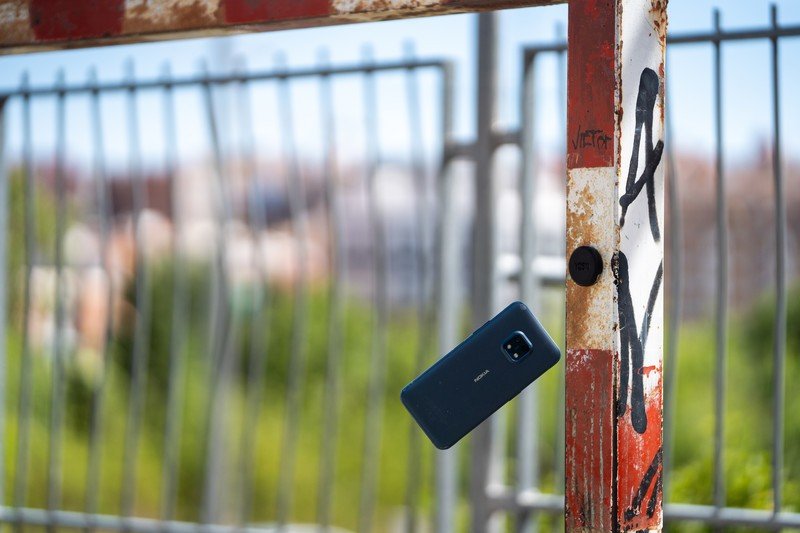
Remove its Rugged design, and the Nokia XR20 becomes the Nokia X20, a £300 phone (yet to release in the US) with similar specs. Because you're paying extra for its durability, the XR20 lags behind comparable mid-range phones for performance. But it has so many other hardware perks, you may not care.
| Category | Nokia G20 |
|---|---|
| Operating System | Android 113 OS updates, 4 years of security updates |
| Display | 6.67-inch FHD+ LCD1080 x 2400 (20:9)550 nits60Hz |
| Processor | Qualcomm Snapdragon 480 5GAdreno 619 GPU |
| Memory | 6GB RAM |
| Storage | 128GBup to 512GB via microSD |
| Rear Camera 1 | 48 MP primary |
| Rear Camera 2 | 13 MP ultra-wide |
| Front Camera | 8MP |
| Security | side fingerprint sensor, face unlock, pattern/PIN unlock |
| Connectivity | Bluetooth 5.1, NFC, 802.11 a/b/g/n/ac/ax-ready, Wi-Fi dual-band (2.4GHz + 5.0GHz), 2x2 MiMo |
| Ports | USB-C, hybrid dualSIM with microSD support, 3.5mm audio combo jack |
| Battery | 4,630mAh |
| Charging | 18W wired fast charging15W wireless charging |
| Protection | Gorilla Glass VictusMIL-STD-810HIP68 water/dust resistance |
| Dimensions | 6.76 x 3.21 x 0.42 inches |
| Weight | 8.8 ounces |
| Colors | Ultra blue, Granite |
Nokia gave the XR20 the Snapdragon 480 5G chipset, a chipset for budget 5G phones in the $300-and-under range — the $250 OnePlus Nord N200 5G and £200 Moto G50, for instance. It's not exactly designed for intense gaming performance (more on that in the next section). 6GB of RAM ensures it doesn't slack on regular tasks; but other $500-ish phones will likely have more powerful chipsets and faster refresh rates.
You get 128GB of SSD storage with no upgrade option. The phone has a hybrid dual-SIM slot, meaning you'll have to choose between two SIM cards or one SIM and one microSD card. If you can make do with standard storage, the XR20 could certainly be one of the best dual-SIM Android phones for a certain kind of buyer.
The SIM slots sit on the top of the phone, alongside a red button meant for calling your emergency contacts. But you can configure it to perform whatever shortcuts you want when you tap or hold it down. You also get access to Google Assistant when you press the button on the left-hand side. On the phone's right, you'll find the volume buttons. And on its bottom, you'll find the USB-C port and 3.5mm headphone jack. Nokia even added in NFC support, wireless charging, dual speakers, and a side fingerprint sensor.
Overall, many of these hardware features are being abandoned on mainstream Android phones, while others are often excluded from budget or mid-range phones. The XR20 has them all anyway.
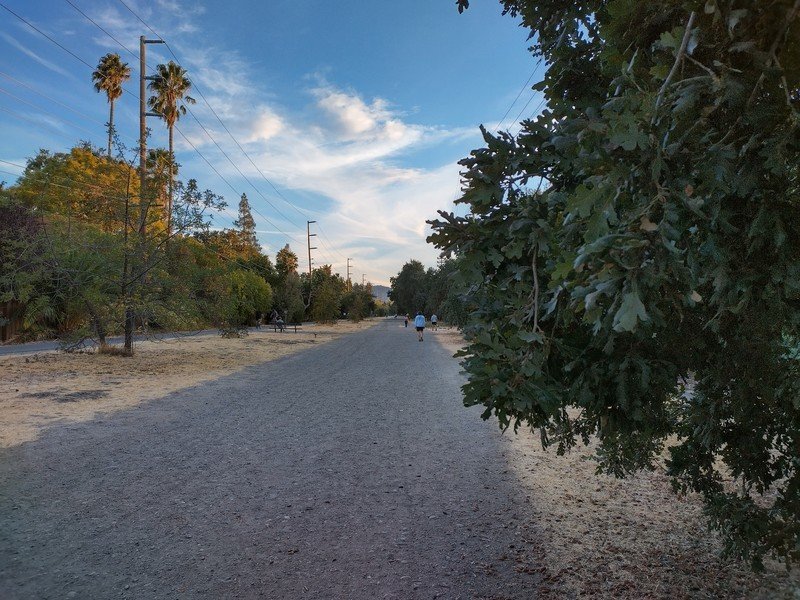
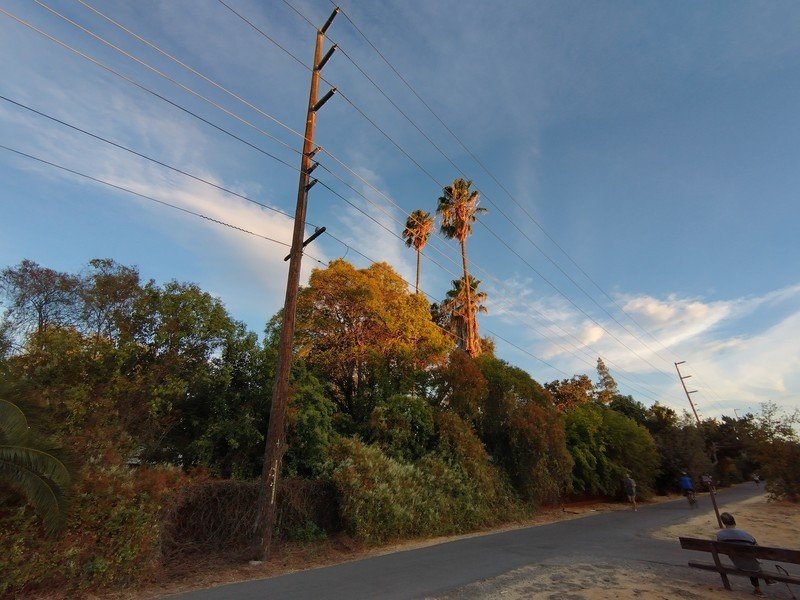
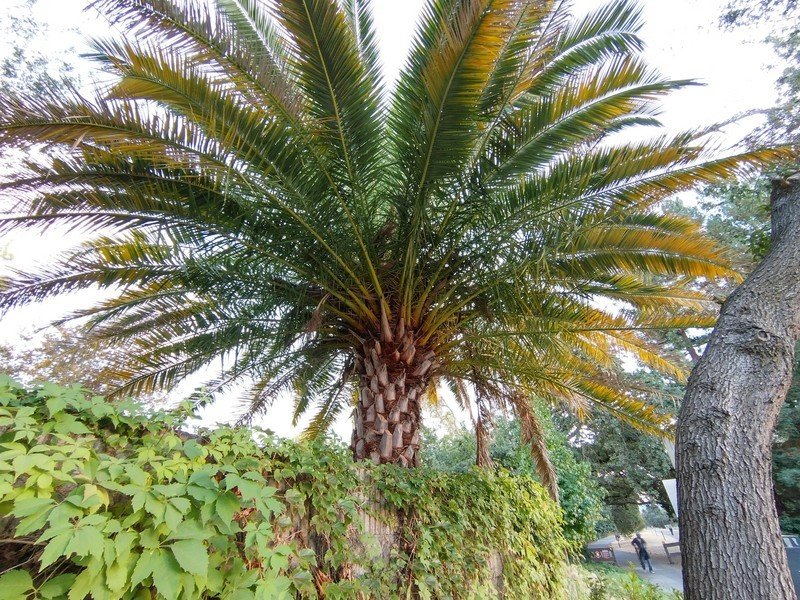

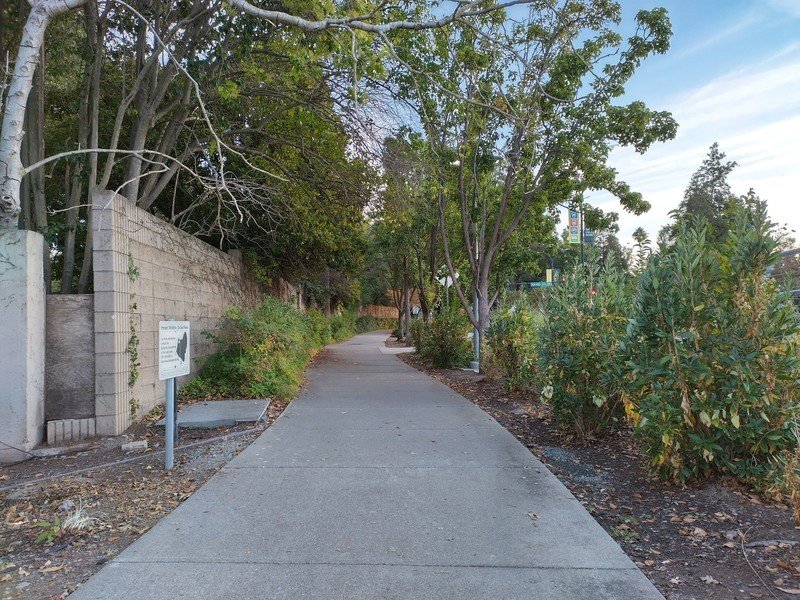

Don't buy the XR20 for its cameras, but its main sensor pulls its weight.
In terms of camera performance, I'd call the phone perfectly average. Its 48MP main shooter captured my nearby walking trail with solid fidelity, though you can tell it starts to lose some detail as you zoom in. The 13MP ultrawide shooter captured enough detail to be serviceable for wide landscape shots, but generally speaking, I preferred the main lens for better detail and color fidelity. And given how poor the macro photography was on the Nokia G20, I didn't mind its absence with the XR20.
If I have a complaint with camera performance, it's with Night Mode. When I tried to take shots, it would tell me to hold still, show a loading circle, then stutter for a couple of seconds before taking the shot. I frequently assumed the shot had been taken, only to realize later I had a bunch of blurry photos of the ground as I prematurely moved the phone.
Generally speaking, the Nokia XR20 will let you capture moments in your daily life as well as any rugged phone. But it's not in the same league as the best camera phones; comparably priced handsets like the Pixel 5a (with a heavy-duty case) would serve you better on that front.
Nokia XR20: Software, performance, and battery life
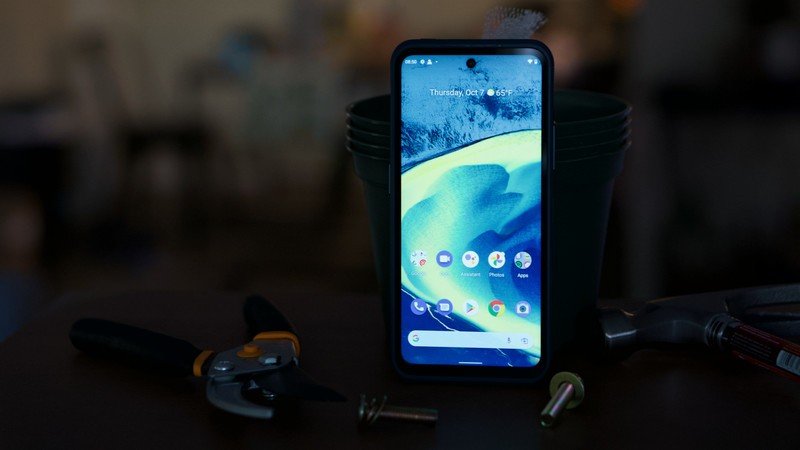
HMD Global extended the Nokia XR20's longevity to its software as well as its hardware: it'll last you three software generations (up to Android 14) and four years of security updates (through the summer of 2025). Most rugged phones don't come close, and many of them are stuck on older Android OS versions with no update plan.
I'll make a small note here that Nokia had some issues hitting its update schedule for Android 11, with many of its phones needing a few extra months to receive it. So we can't guarantee when the XR20 will get Android 12 and onwards, only that it will.
Nokia provides a more polished software experience than smaller rugged brands can provide.
Otherwise, the Nokia software experience has always been near to the stock Android you'd get on Pixels, which I personally prefer but others may find plain. I don't know if they call it Android One anymore or not, but it has almost no bloatware, core Google apps pre-downloaded, and a UI that's clean and easy to navigate.
As for performance, I've already mentioned that the XR20 runs off of the Snapdragon 480 5G chipset. This may sound low, but it's a surprisingly efficient bit of hardware that'll outperform some older, higher-numbered chips. For a useful benchmark, compare it to the Snapdragon 750G found in the excellent mid-range Samsung Galaxy A52 5G. In Nanoreview's breakdown, the 480 5G does fall short in computing and gaming, but not by a significant margin. And both are equally reliable at preserving battery life.
In my personal time with the phone, I barely noticed any lag when pulling up apps, googling information, or typing on the keyboard. I was able to play PUBG Mobile on HD settings with a high frame rate and Genshin Impact on Medium settings — though it did show me as being close to the overclocking max. Out of all the best Android games, you should be able to play the vast majority of them on base settings.
I can't predict how the XR20 will perform on Android 14 or playing new games in 2024, but it handles itself well for now.
As for Nokia XR20 battery life, its 4,630mAh battery gives it true all-day longevity. Used for constant gaming and streaming, it still lasted me about 10 hours. And on other days where I used it more casually for email and browsing, the battery still had plenty of capacity at bedtime (typically midnight, in my case).
One last note: some rugged phone buyers will see this battery size as a compromise. Other rugged phones tend to be heavier and thicker in exchange for a 5,000–8,000mAh battery that could last you up to two days consistently. I personally prefer comfort and efficiency to massive capacity, but I'm an indoor guy who isn't the target audience for this phone.
Nokia XR20: Competition
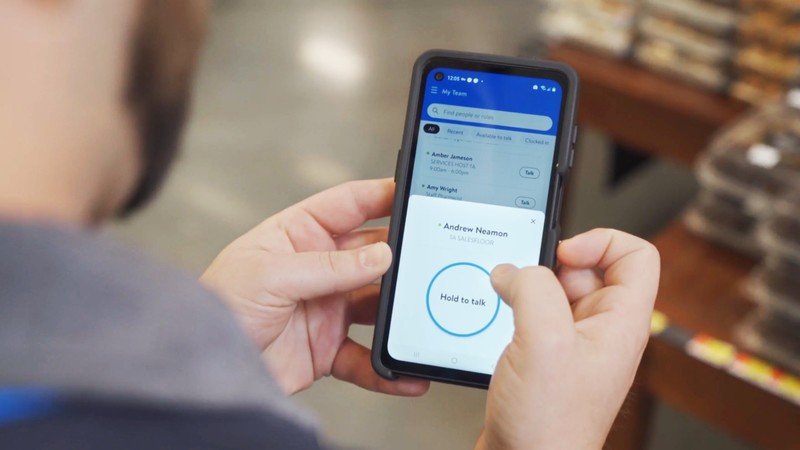
The Nokia XR20 has very few actual competitors outside of the best rugged phones. And of those options, I'd argue that the Nokia XR20 stands apart as a more polished and enduring device thanks to its software. But if you need a specific feature like a thermal camera or protection from extreme temperatures — or a larger battery — then another rugged option from that list could serve you better.
You can try to make do with a cheaper, non-rugged Android phone with a case and screen protector. But other rugged phones fall short of the XR20.
You may look at that list and consider the Samsung Galaxy XCover Pro — the other rugged phone from a name-brand manufacturer. It has a 6.3-inch LCD display, is both easier to hold and lighter than the XR20, and has "enhanced touch" features for using it with gloves. Plus, you can remove the 4,050mAh battery and swap in a new one. However, it does have some downsides: It started with Android 9, meaning its last update will be Android 12. And its 4GB of RAM and 10nm Exynos 9611 chipset give you slightly dated performance.
Otherwise, the best rival to the Nokia XR20 may be another mid-range phone with a heavy-duty case and a screen protector. With a budget Galaxy A series phone or OnePlus Nord phone, you'd receive similar performance and a thinner build for at least $100 less, more than enough savings to buy some protective gear. Then again, you'll miss out on Nokia's intangible perks like dual-SIM and programmable buttons, plus the free screen repair.
Nokia XR20: Should you buy it?
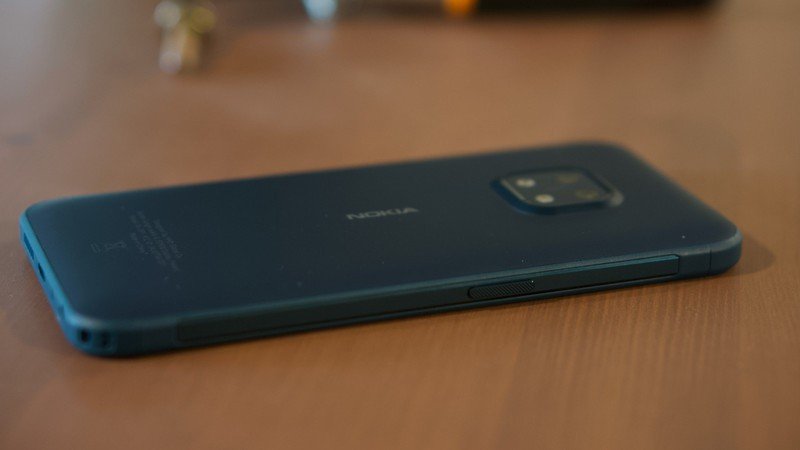
You should buy this if ...
- Your job involves high-risk work (e.g., construction or manufacturing), or you spend a lot of time on active outdoor activities where your phone could get wet or cracked
- You want a rugged phone that doesn't immediately look like a rugged phone
- You care more about longevity than performance
You shouldn't buy this if...
- You don't like thick, heavy phones
- You want cutting-edge gaming performance
- You need two-day battery life
If you're someone in the market for a rugged phone, the XR20 checks almost every box you could need. Other brands may provide specific features that sound more appealing; but the XR20 is more likely to still have functional software and decent performance speeds three or four years from now.
4.5 out of 5
If you're not someone who typically buys a rugged phone? The XR20 will be heavier than what you're used to, but it's at least not as heavy as most other rugged phones. You'll have to consider how often you really think you'll drop or submerge your phone, and whether you can make do with a thinner phone, a case/ screen protector, and an emergency bag of rice instead.
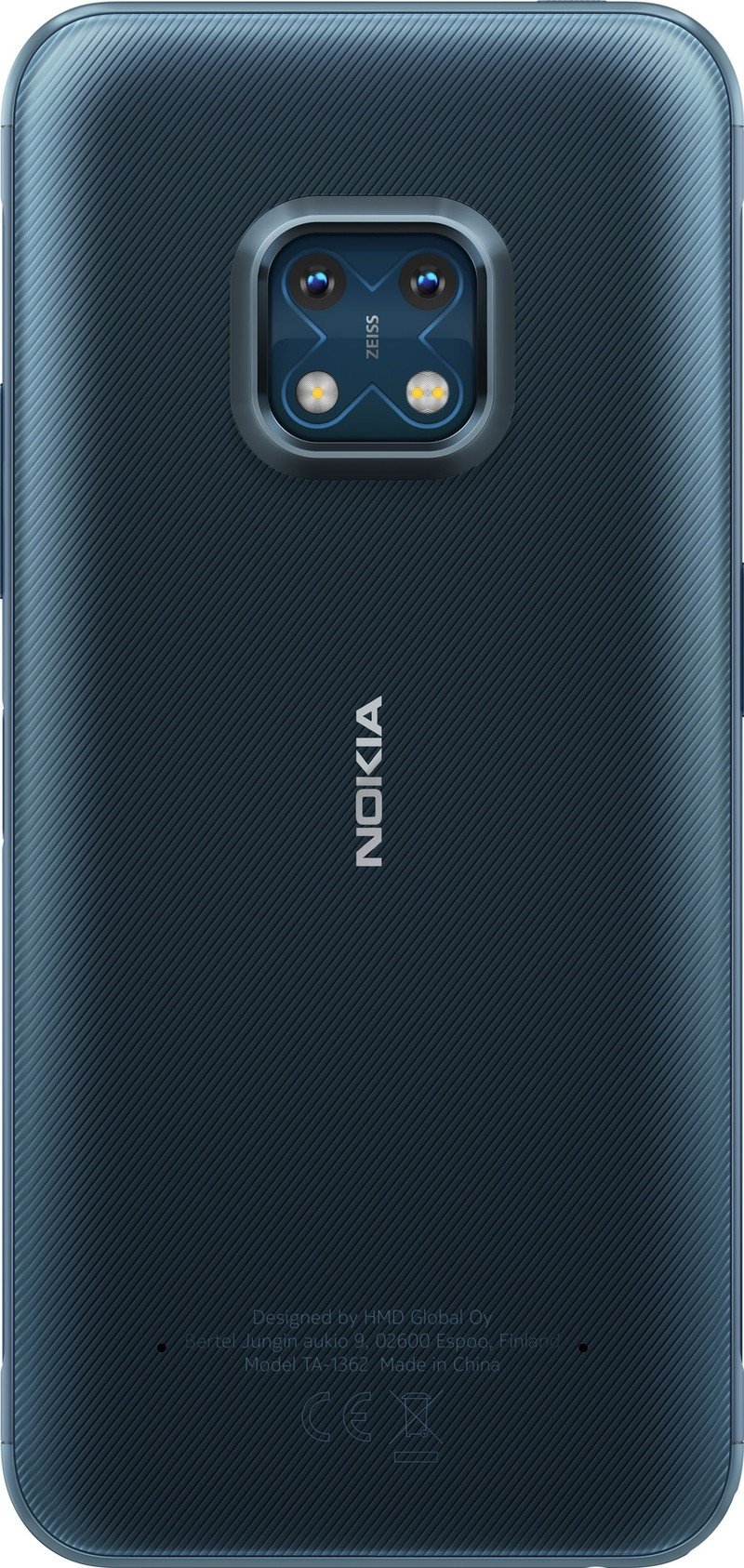
Nokia XR20
Bottom line: With the Nokia XR20, you get a shock-proof, waterproof exterior, a comfortably familiar software experience, decently fast Snapdragon 480 5G performance, and useful add-ons like NFC, dual-SIM, programmable buttons, and wireless charging.

Michael is Android Central's resident expert on wearables and fitness. Before joining Android Central, he freelanced for years at Techradar, Wareable, Windows Central, and Digital Trends. Channeling his love of running, he established himself as an expert on fitness watches, testing and reviewing models from Garmin, Fitbit, Samsung, Apple, COROS, Polar, Amazfit, Suunto, and more.
